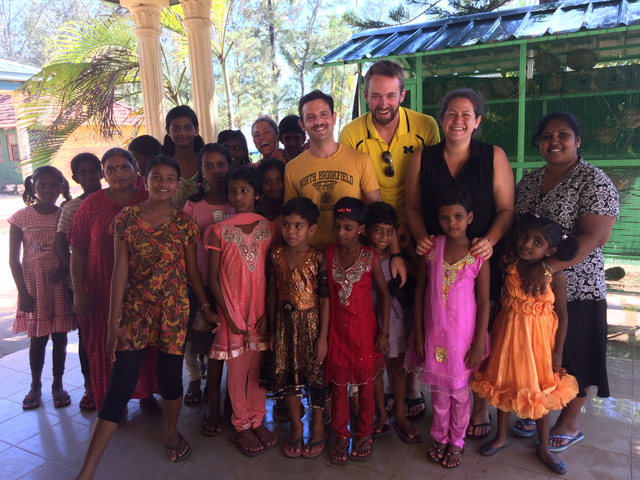Tech In Education Is Great, But Don’t Forget Lower-Tech Models
Monday, August 3, 2015
WDI President Paul Clyde recently wrote an article for the Stanford Social Innovation Review (SSIR) promoting educational models that tie pedagogy to business that can provide revenue and give students the chance to learn job skills.

Clyde said technological advances are very popular in education, as they should be, because they add new, exciting dimensions to learning. But in the race to find and use the latest and greatest technology, Clyde warns not to overlook lower-tech educational experiences that can provide revenue and give students practical business exposure.
Read the article here.
One of the examples Clyde discusses is the Grace Care Center, an all-girls orphanage in Sri Lanka that has been the subject of a Ross School of Business student project and is currently hosting a WDI summer intern. The Ross student team studied whether a hotel on the orphanage site – located on a beautiful beach – could generate revenue for the orphanage while also giving the girls the opportunity to develop job skills in the tourism and hospitality industries.
WDI intern Michelle Gross from Ross and the School of Natural Resources and the Environment is at the orphanage this summer focus on strengthening its financial sustainability by helping the organization develop a business model for generating income to reduce its dependency on international donors and traditional fundraising. She is developing a business plan where tea exports from Sri Lanka will be sold by Ann Arbor, Michigan-based Zingerman’s, a world-renown delicatessen and gourmet food shop. A portion of the proceeds will go toward funding the education of girls at the orphanage. In collaboration with the co-founders of Zingerman’s and VeAhavta, tea farmers, local Sri Lankans, and Gross will work to establish exportation agreements. The young women from the orphanage will not only benefit from the proceeds of this high- quality product, but will also learn business management skills as they help maintain the quality and consistency of the product exported to Zingerman’s.
